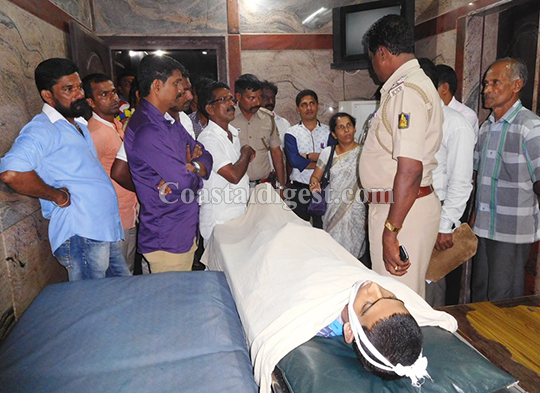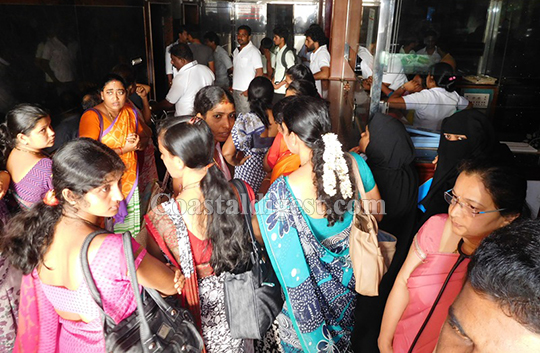coastaldigest.com news network
June 30,2020
Udupi, June 30: A girl who appeared for SSLC exams in three subjects tested positive for COVID-19 in Kundapur taluk of Udupi district today.
Sheshashayana Karinja, Deputy Director of Public Instruction (DDPI) said that the 15-year-old girl had a headache and her parents took her for testing and she had tested positive for COVID-19.
She will appear for the remaining three subjects during the supplementary exams in August.
The room where the girl appeared for the exam had been sanitised. But exams would not be held in that room. All precautions have been taken in that exam centre in Kundapur taluk, Mr. Karinja said.
The other 19 students will be allowed to write their exams as there was a distance of one metre between them and there was no contact between the students during the exams, Mr. Karinja added.
It is learned that a couple of months ago, a Mumbai returnee who recovered from COVID-19 had visited the girl’s house. However, it is not clear that she got an infection from the Mumbai returnee.
It could be recalled here that a student from Hejamadi in Udupi district who was preparing for the Science exam had tested positive two days back and she is currently being treated at a hospital.








Comments
very coward act.....wats d point in educating such coward individuals who cant face life challenges at such young age....?????
he has lost his life both in ths world n hereafter......may Allah forgive his sins
Add new comment